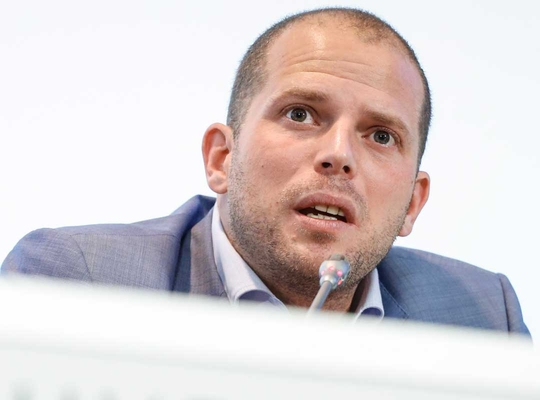You are here
Theo Francken: “Tougher rules for asylum seekers”

At the request of Theo Francken, the state secretary for Asylum and Migration, the federal government has approved a package of measures to limit the inflow of asylum seekers. The measures, among others, relate to applications for family reunification, the residence status for recognised refugees and the data exchange between Fedasil and the Crossroads Bank for Social security Social security is currently managed at the Federal level in Belgium. The most important pillars of Belgian social security are: sickness and invalidity insurance (NIDHI), pensions, unemployment insurance and child allowances. In addition, occupational illness, occupational accidents and annual holidays are dealt with at this level. Some Flemish parties have been campaigning for years for (large parts of) social security to be transferred to the Regions and Communities. Social Security (KSZ) . The introduction of a declaration of commitment to respect the European rights, duties, values and freedoms, probably is the most notable measure. “We can refuse Belgian nationality to anyone who refuses to sign this essential declaration,” says Francken.
With the signing of this commitment declaration, newcomers commit to respect the fundamental values and acquis of European citizens. More specifically this includes:
- equality between men and women,
- freedom of expression,
- respect for sexual orientation,
- freedom of religion or belief,
- the separation of religion and state,
- acceptance of the democratic values and the sovereign state.
The refusal to sign this declaration can also be taken into account in the assessment of the asylum application by the Commissioner General for Refugees and Stateless Persons (CGVS).
Temporary residence permit
As previously announced, the rules for residency and family reunification have also become stricter. Henceforth recognised refugees will only be given temporary residence permits for the first five years. “In the past they used to receive permanent residency. Belgium was one of the few countries to do this,” Francken explains.
When the statutory deadline for processing an application for family reunification is exceeded without a decision being made, temporary residency is automatically granted. This term is now extended from six to nine months for nationals of a non-EU country, the so-called third-country nationals. Thanks to this new measure, the competent services now have more time to thoroughly investigate the application and avoid unjustified approvals. “The high influx of asylum seekers may also lead to an increase in the number of applications for family reunification. Our proactive action is designed to give the competent authorities more time to continue to guarantee that applications are carefully processed. The quality of the decisions remains a priority,” said the state secretary.
Finally, Fedasil employees will now have faster access to the data of the Crossroads Bank for Social Security. “This will allow them to recover the cost for accommodation and care in part or in full from asylum seekers who work,” Francken concludes.

